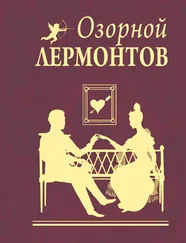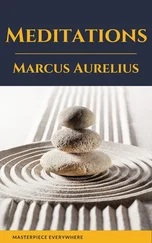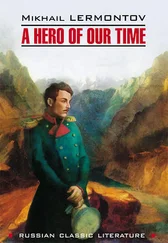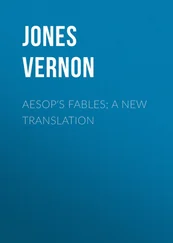About five minutes passed. My heart was pounding, but my thoughts were calm, my head was cold. As much as I tried to find a spark of love in my heart toward the lovely Mary, my strivings were in vain.
Then the doors opened, and she came in. Good God! How she had changed since I had last seen her—was it that long ago?
Walking to the middle of the room, she swayed. I jumped up, gave her my arm, and led her to an armchair.
I stood opposite her. We were silent for a long time. Her big eyes, filled with indescribable sorrow it seemed, were looking into mine with something resembling hope. Her pale lips tried to smile in vain. Her delicate hands, crossed on her knees, were so thin and transparent that I felt pity for her.
“Princess,” I said, “did you know that I was mocking you?… You should despise me.”
A sickly flush appeared in her cheeks.
I continued, “Therefore, you cannot love me…”
She turned away, leaned her elbows on the table, and covered her eyes with her hand, and it seemed to me that they glistened with tears.
“My God!” she uttered, barely distinguishably.
This was becoming unbearable—in a minute I would fall to her feet.
“So, as you can see yourself,” I said, with as firm a voice as I could, and a forced grin, “you can see for yourself that I cannot marry you; even if you might want this right now, you would soon rue it. My conversation with your mama has forced me to clarify this so plainly and grossly. I hope that she is in error. It will be easy for you to persuade her to the contrary. You see, in your eyes, I am playing the most pitiful and vile role, and I am even admitting to it. This is all I can do for you. Whatever bad opinion you hold of me, I submit to it… You see, I am lowly before you. Isn’t it true that even if at one time you loved me, that from this minute you despise me?”
She turned to me, pale as marble—only her eyes sparkled marvelously.
“I hate you,” she said.
I thanked her, bowed politely, and left.
An hour later, a courier troika was rushing me from Kislovodsk. A few verst s from Essentukov I recognized the corpse of my spirited horse near the road. The saddle was removed—probably by passing Cossacks—and instead of the saddle, on his back stood two crows. I exhaled and turned away…
And now, here, in this boring fortress, I often ask myself, running through thoughts of the past: why didn’t I want to follow the path opened to me by fate, where quiet happiness and spiritual peace awaited me?… No, such a fate wouldn’t have agreed with me! I am like a sailor, born and bred on the deck of a pirate ship. His soul has got used to storms and battles, and, when thrown ashore, he pines and languishes much as the shady groves beckon him, much as the peaceful sun shines at him. He walks along the coastal sands all day, listening to the monotonous murmur of the lapping waves and peering into the cloudy distance: is that the sail he seeks, on the pale line that separates the blue deep from the little gray storm clouds—at first resembling the wing of a seagull, but little by little, separating from the foam of the boulders, with a steady approach toward the deserted jetty…
I once happened to spend two weeks in a Cossack stanitsa [1] stanitsa: A large Cossack village.
on the left flank. An infantry battalion was stationed there. The officers gathered in one another’s quarters in turns, and played cards.
Once, we stayed up late at Major S—’s, having become bored with Boston [2] Boston: A card game.
and thrown the cards under the table. The conversation was, for once, entertaining. We were discussing the Muslim belief that apparently says the fate of a man is written in the sky; this also finds many believers among us Christians. Each of us was recounting various unusual occurrences, pro and contra .
“All this, gentlemen, doesn’t prove anything,” said the old major. “Indeed, none of you have borne witness to these strange occurrences with which you are shoring up your opinions.”
“None of us has, of course,” the men said, “but we have heard these things from trusted people…”
“All this is nonsense!” someone said. “Where are these trusted people, who have seen this list that tells us the appointed hour of our death?… And if there is definitely such thing as predestination—why were we given free will, and reason? Why should we atone for our actions?”
At this time, an officer who had been sitting in the corner of the room stood and walked slowly up to the table, throwing a cool glance at the company. He was a Serbian type, which was evident from his name.
The exterior of Lieutenant Vulich corresponded entirely with his character. His great height and the dark complexion of his face, his black hair, his black and penetrating eyes, a big but straight nose (characteristic of his nation), a sad and cold smile eternally roaming on his lips—all this seemed to coordinate itself in giving him the look of a special being, not able to share thoughts and passions with those whom fate had given him to be his comrades.
He was brave, spoke little but incisively; he did not entrust anyone with the secrets of his spirit or family. He hardly drank wine, never pursued young Cossack girls—the charms of whom it is difficult to imagine without seeing them. They used to say, however, that the wife of the colonel was not indifferent to his expressive eyes. But he became seriously angry when you hinted at this.
There was only one passion that he didn’t hide: a passion for gambling. At the green table he forgot everything, and usually lost. But constant losses only aggravated his stubborn nature. They say that once, during a night expedition, he was keeping bank on his pillow, and he was having terrific luck. Suddenly shots rang out, an alarm was raised, everyone jumped up and dashed to their guns.
“Stake the bank!” cried Vulich to one of the hottest betters, without getting up.
“Sevens,” replied the other, running off. Disregarding the general chaos, Vulich shuffled the double-deck of cards, and the card was dealt.
When he appeared on the front line, there was already a fierce gunfight in progress. Vulich didn’t bother himself about the bullets, or the Chechen sabers. He was looking for his lucky punter.
“Seven it is!” he cried, finding him at last in the line of skirmishers, which had started to force the enemy out of the forest. Walking closer, he pulled out his coin-purse and wallet and gave them both to the lucky man, not paying attention to objections about the inappropriateness of the payment. Having fulfilled this unpleasant debt, he threw himself forward, carrying the soldiers along and fired back and forth with the Chechens with a cold and calm head, until the end.
When Lieutenant Vulich walked up to the table, everyone fell silent, expecting some original trick from him.
“Gentlemen!” he said (his voice was calm, even though his tone was lower than usual). “Gentlemen! What is this empty argument? You want proof: I suggest you put this to the test yourselves. Perhaps there is a person who will exercise his will and put their life at our disposal, or is a fateful minute affixed to each of us beforehand… Who is game?”
“Not me, not me,” resounded from every side. “What a crank! The things that enter his head!”
“I’ll make a wager!” I said, joking.
“Which one?”
“I assert that predestination does not exist,” I said, pouring some two dozen gold pieces onto the table—everything that was in my pocket.
“I’ll take it,” replied Vulich in a muffled voice. “Major, you will be the judge; here are fifteen gold pieces, the remaining five you owe me, and please do me the kindness of adding them to this.”
Читать дальше
Конец ознакомительного отрывка
Купить книгу
![Михаил Лермонтов A Hero of Our Time [New Translation] обложка книги](/books/27671/mihail-lermontov-a-hero-of-our-time-new-translati-cover.webp)










